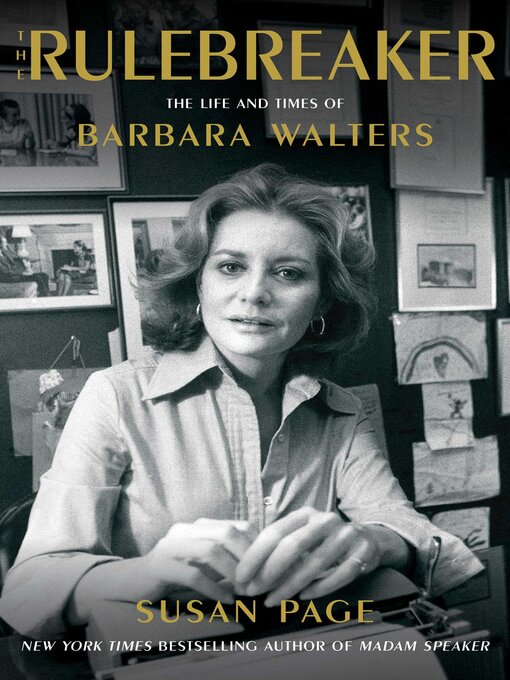Barbara Walters was a force from the time TV was exploding on the American scene in the 1960s to its waning dominance in a new world of competition from streaming services and social media half a century later. She was not just a groundbreaker for women (Oprah announced when she was seventeen that she wanted to be Barbara Walters), but also expanded the big TV interview and then dominated the genre. By the end of her career, she had interviewed more of the famous and infamous, from presidents to movie stars to criminals to despots, than any other journalist in history. Then at sixty-seven, past the age of many female broadcasters found themselves involuntarily retired, she pioneered a new form of talk TV called The View. She is on the short list of those who have left the biggest imprints on television news and on our culture, male or female. So, who was the woman behind the legacy?
In The Rulebreaker, Susan Page conducts 150 interviews and extensive archival research to discover that Walters was driven to keep herself and her family afloat after her mercurial and famous impresario father attempted suicide. But she never lost the fear of an impending catastrophe, which is what led her to ask for things no woman had ever asked for before, to ignore the rules of misogynistic culture, to outcompete her most ferocious competitors, and to protect her complicated marriages and love life from scrutiny.
Page breaks news on every front—from the daring things Walters did to become the woman who reinvented the TV interview to the secrets she kept until her heath. This is the "stunning" (Norah O'Donnell), "brilliantly written" (Andrea Mitchell) account of the woman who knew she had to break all the rules so she could break all the rules about what viewers deserved to know.


